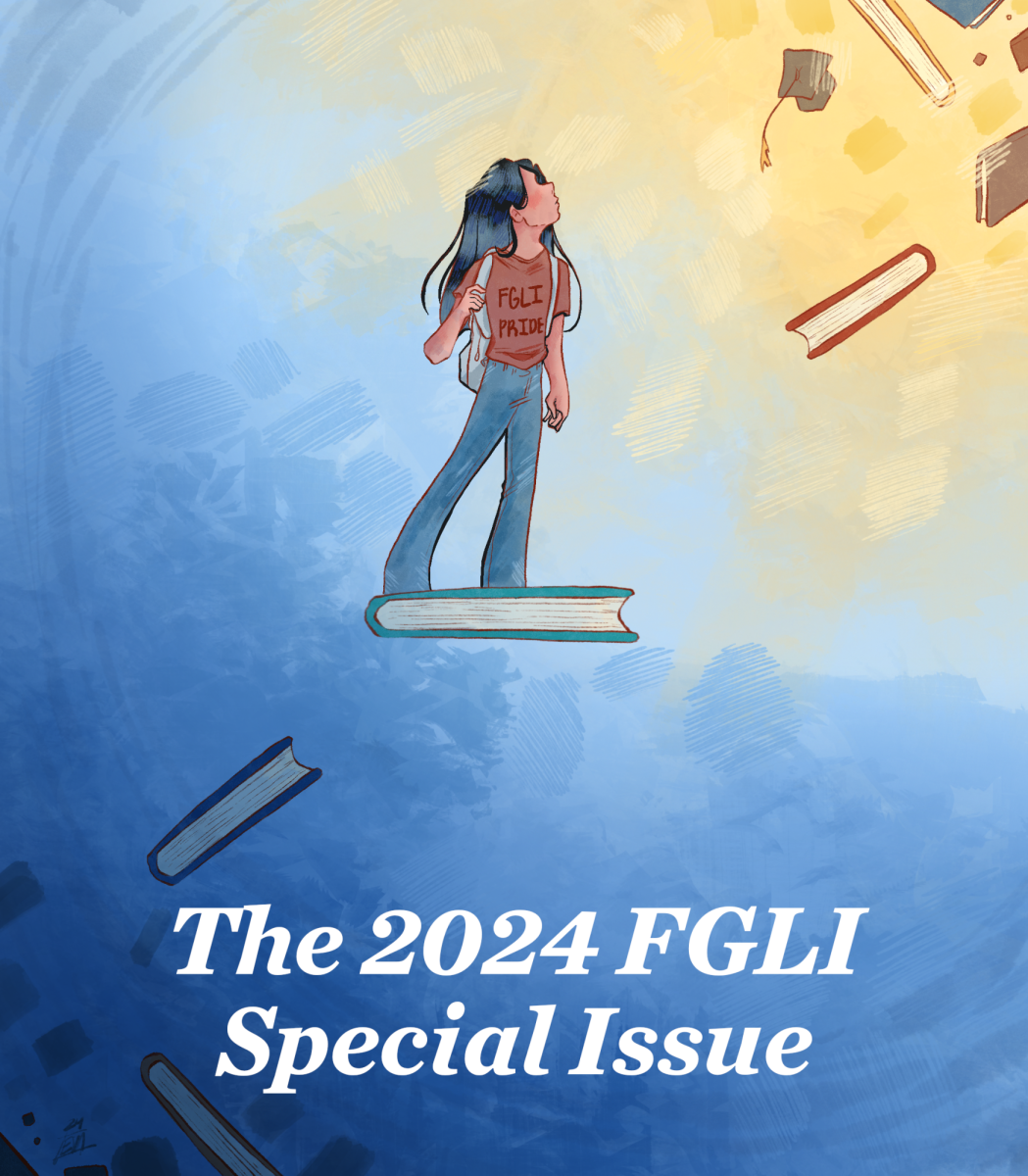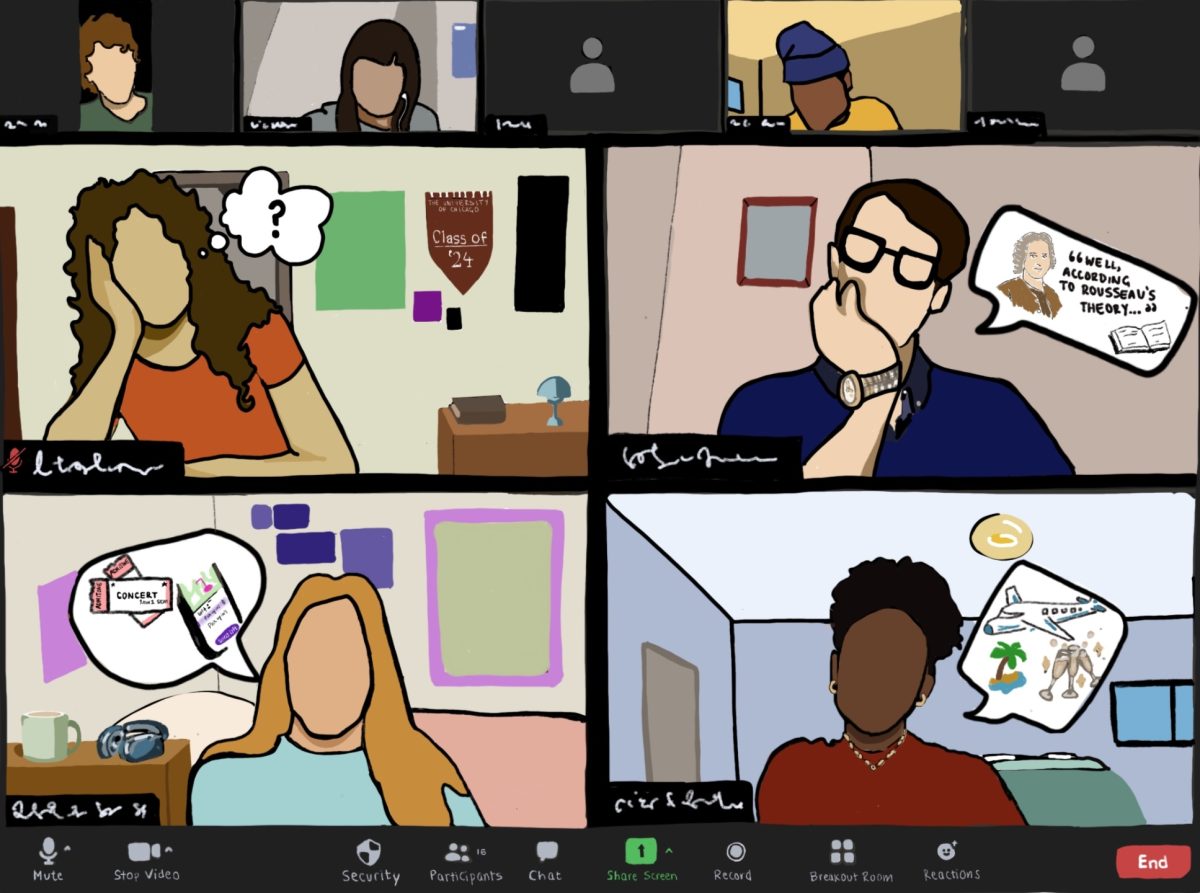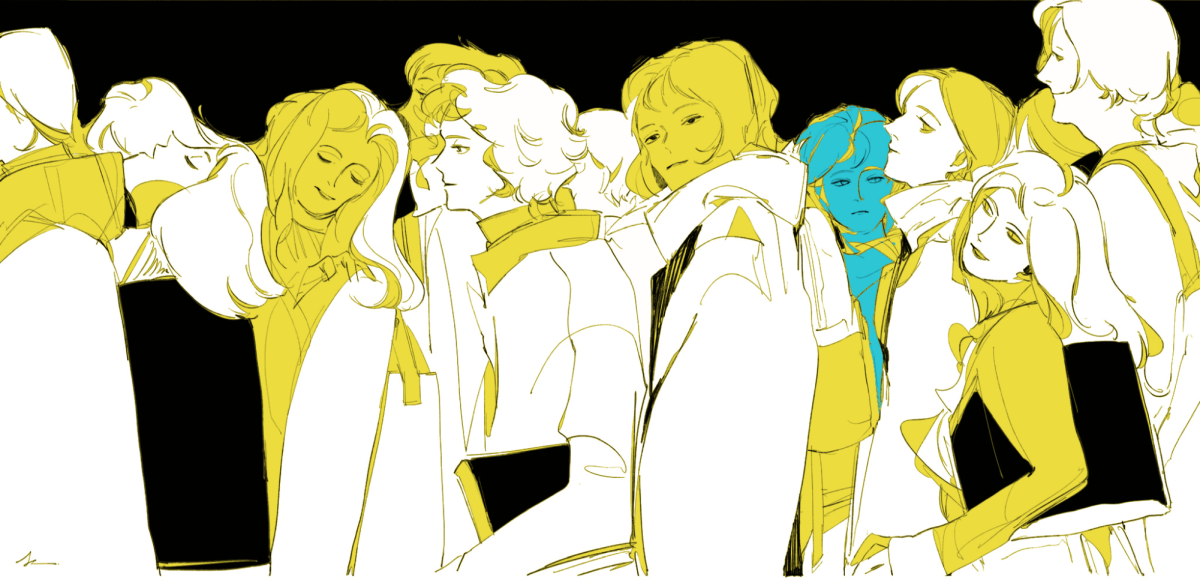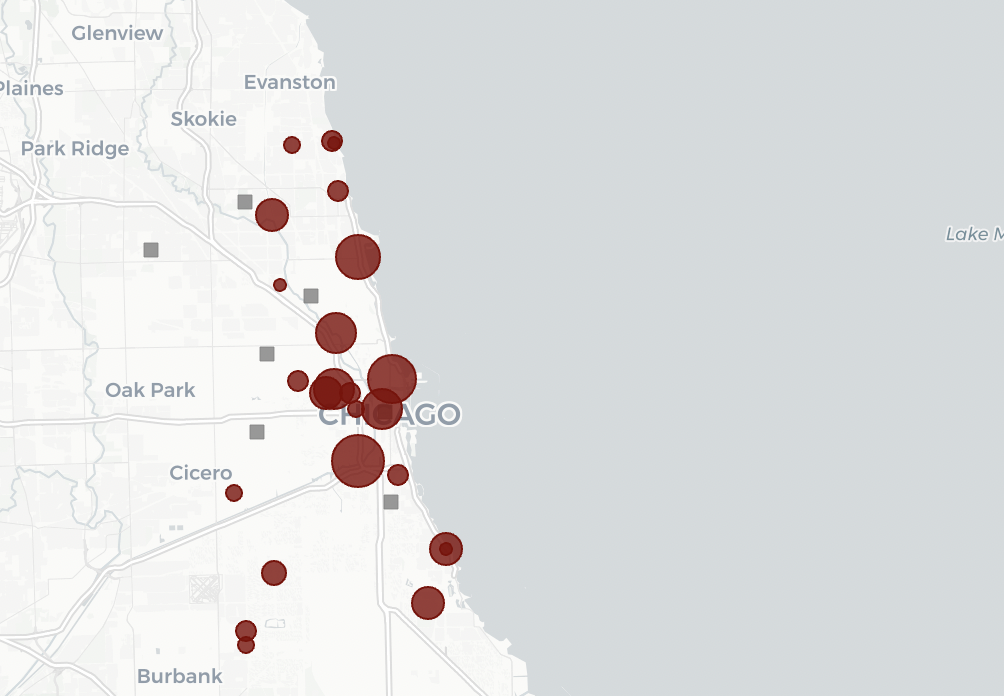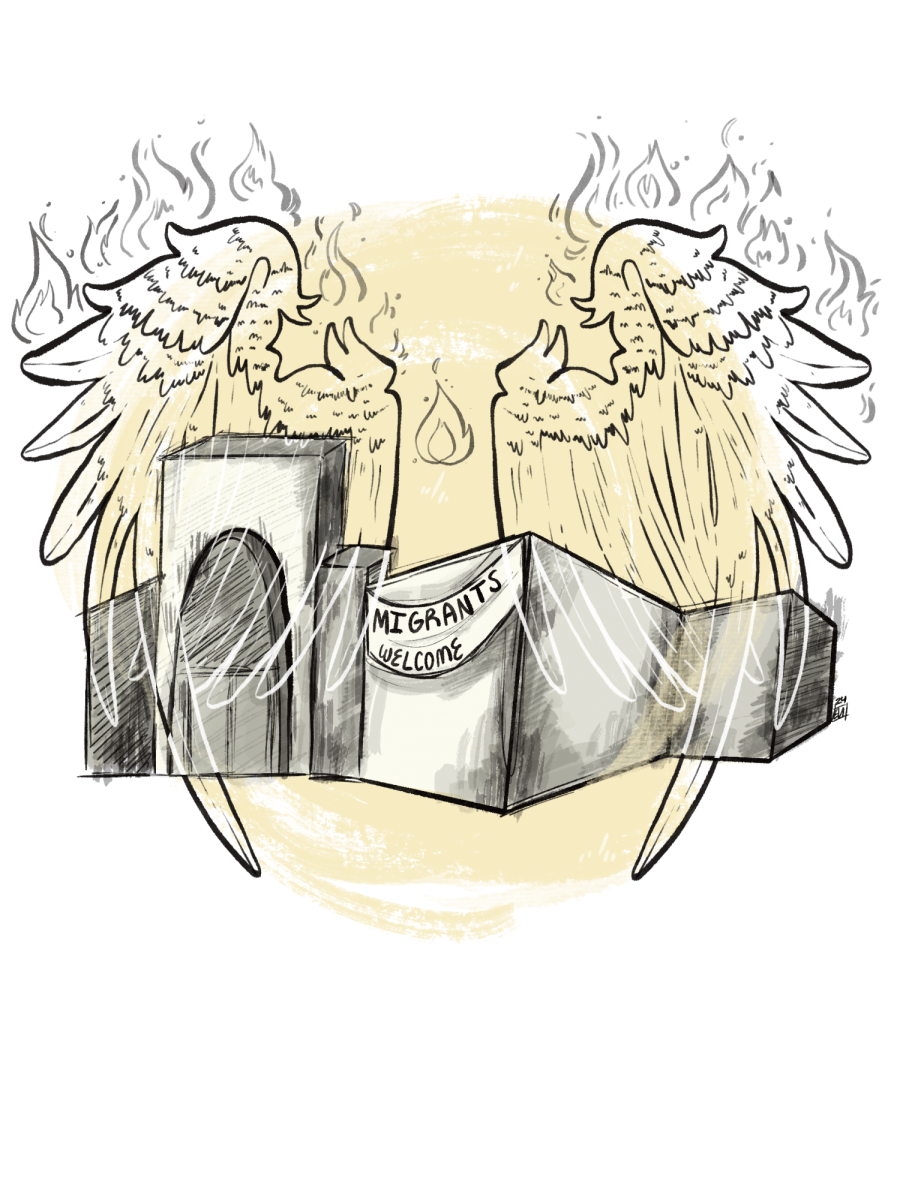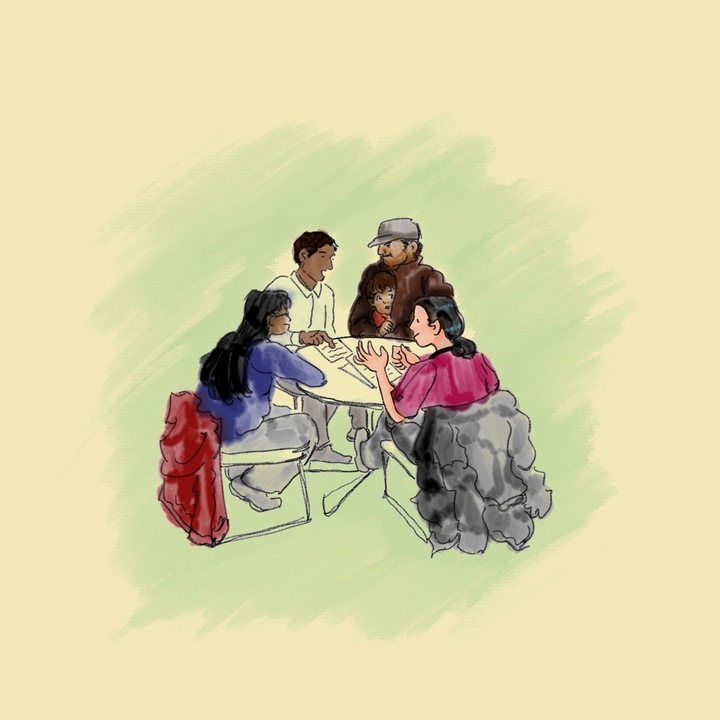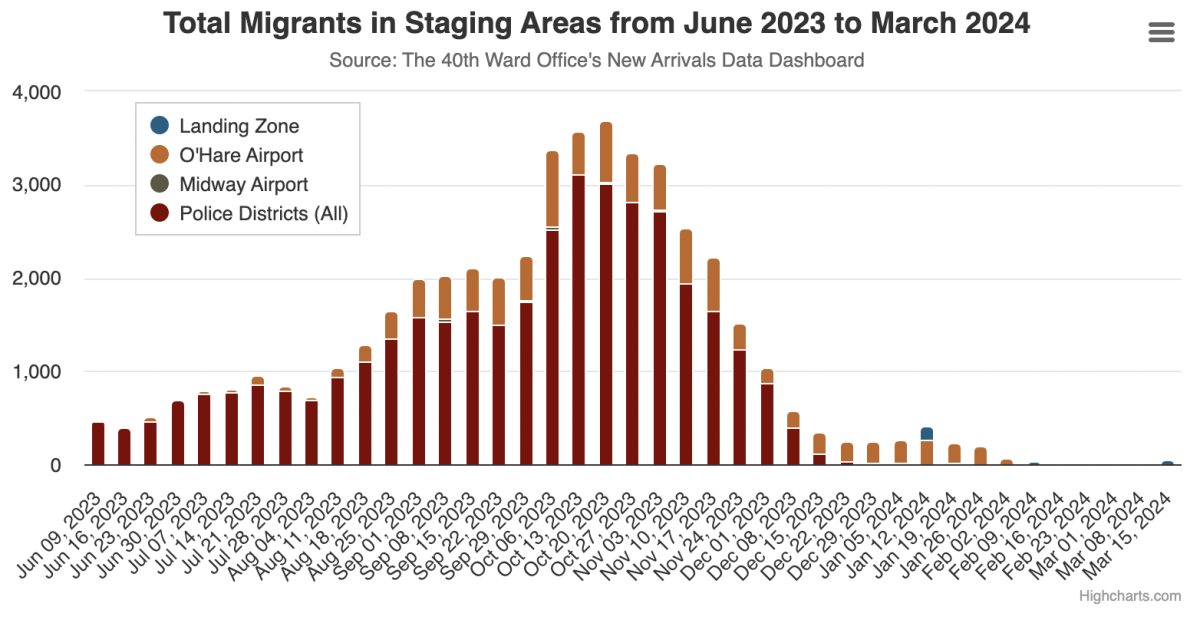While excitedly waiting for an IOP event to begin, I unfortunately overheard someone say amidst the chatty crowd, “Well, I pay $30,000 a quarter, so you can probably see why I don’t have any sympathy for you.” Although I obviously will never know the true context of this conversation, as a low-income student, the comment felt like a slap in the face. It was immediately confirmed that my college experience is marked by unique challenges and mental strain, and my fellow peers might not know, or worse, might not care.
In conversations concerning mental health on campus, the concept of imposter syndrome often takes center stage. Virtually every student at any point in their academic career can face a struggle with self-doubt in their intelligence and capabilities, especially when surrounded by extremely talented and ambitious peers. Yet, the particular challenges faced by First-Generation and Low-Income (FGLI) students unravel an account of student life that extends far beyond the confines of conventional imposter syndrome.
When conventional imposter syndrome is compounded by a lack of a sense of belonging and the relentless pressure to succeed despite daunting financial and social hurdles, FGLI students can suffer amplified mental health concerns. Accompanying this amplification is the stigmatization and costs associated with mental healthcare, leaving FGLI students exceedingly vulnerable. While admitting FGLI students and providing us with a life-changing education is generous, it is paramount that the University become aware of what it is actually like when we get here in order to further improve mental health resources.
A Sense of Belonging
Something largely overlooked is that FGLI students come from communities with much more collectivist cultures than the stark individualism they are confronted with on campus. This difference, called a cultural mismatch by social psychologists, has the ability to impair one’s sense of belonging as well as one’s academic achievement. When an FGLI student—accustomed to the “it takes a village” mindset—is thrusted into a community that values those who have distinguished themselves through their exceptionality, it can be extremely difficult to grasp that they are now an independent individual. Many FGLI students’ families have made hefty sacrifices, and their communities have provided support in unimaginable ways in order for them to succeed; being far away from this essential support system can take its toll.
Cultural mismatches also emerge as FGLI students interact with peers that are not of low socioeconomic status. Perhaps not out of malice but ignorance, non-FGLI students can frequently bring up what they consider “normal” life experiences, while FGLI students wrestle with knowing these experiences are thought of as luxuries in their own lives. Among friends, FGLI students who have never left the country can only listen quietly while conversations about grand international travel experiences and plans occur. Thus, FGLI students can feel as though they are “behind” or missing out on rich cultural experiences that are shared as a form of social currency.
Alongside this inability to relate to their peers’ lifestyles, FGLI students must also grapple with affording social activities to build relationships. Going out to eat on weekends or attending a concert might be simple expenses for some, but for low-income students, they are mental receipts on which they are racking up unnecessary costs. What appears to be a lowkey trip into Chinatown quickly unfolds to include a Lyft ride, a restaurant bill, a 20 percent tip, and an overpriced boba drink for dessert. Beyond these weekend plans, FGLI students who are interested in Greek life must contemplate how quarterly dues, themed events, and banquets will affect their finances. Some students may feel as though these activities are not worth their costs, no matter how interested they are in participating. This disengagement can further isolate them from a sense of belonging, especially in experiencing exciting activities that are not school-related.
The Pressure to Succeed
Although it is true that FGLI students can come from tight-knit communities, these communities do not offer the same networking circles that certain non-FGLI students have been cultivating for years. It is an open secret that the most sought-after jobs are acquired through networking rather than applications, and this is not lost on FGLI students. The difference is many FGLI students are behind the curve, while other students are significantly ahead of them in establishing their career network. Thus, being an alum of certain private high schools already offers significant advantages that the majority of FGLI students cannot boast.
It can be argued that being an alum of UChicago will help to elevate the careers of FGLI students dramatically. While this is true, the pressure felt in attending an elite university can be extremely detrimental to the well-being of these students. The fear of failure is different for FGLI students; while non-FGLI students have a good chance of “bouncing back,” FGLI students are burdened with knowing their attendance at UChicago might be their one shot in improving their circumstances, and it is not promised. FGLI students cannot afford to make big mistakes here—or throughout their professional careers—for there isn’t much of a safety net to catch them if they fall.
Additionally, many FGLI students are confronted with the intersections of their identity which also put pressure on their success. Being LGBTQ+, BIPOC, or a woman while also FGLI puts one at an even greater risk of experiencing microaggressions, stereotyping, and discrimination throughout college and in the workplace. Predicting these experiences and eventually encountering them is both discouraging and dangerous for students’ mental health. No matter how much an FGLI student overcomes their initial imposter syndrome and fear of failure, there is always a strong chance that other factors they cannot control will also inhibit their success.
Mental Healthcare
Considering the mental health strains associated with being first generation or low-income, the stigmatization of mental illness advances problems for these students even further. The communities they come from often have a “get over it and move on” attitude towards mental health concerns, making FGLI students reluctant to reach out when they need help. Furthermore, mental health resources can overestimate the likelihood that people will ask for help, a troubling finding established in social psychology research.
Moreover, FGLI students themselves may overestimate the cost of mental healthcare. If this type of care is perceived to be financially burdensome as well as a “shameful” experience, FGLI students are at higher risk of experiencing a severe mental health crisis while attending college without ever receiving treatment.
It is important that all students on campus, especially FGLI students, are aware of the no-cost resources UChicago has available. For starters, the Student Wellness Center needs more visibility. Although it is nice to see Student Wellness information scrolling on the campus televisions, it may be more useful to distribute physical pamphlets in the dorm rooms before move-in or during an Orientation Week event Having a tangible copy of resources in a safe place, rather than a public bulletin board, will better motivate students to reach out for help without fear of stigmatization.
In helping students battle their pressure to succeed, career workshops tailored specifically to FGLI students could also be beneficial. While many workshops explain how to apply to internships, write a cover letter, and network, many of us are left to answer questions about future goals, such as graduate school, investing, and financial literacy, on our own—goals that non-FGLI students are usually familiar with already. Breaking down nebulous terminology is one simple action that has the potential to make large differences for FGLI students.
Being FGLI does not mean that one must forever endure all of the societal and self-imposed pressures the identity entails. UChicago has made great strides in helping FGLI students, but the modification of current resources may increasingly help students overcome these challenges—without causing further financial stress.
As for fellow non-FGLI peers, perhaps the extension of a little consideration might do some good.



